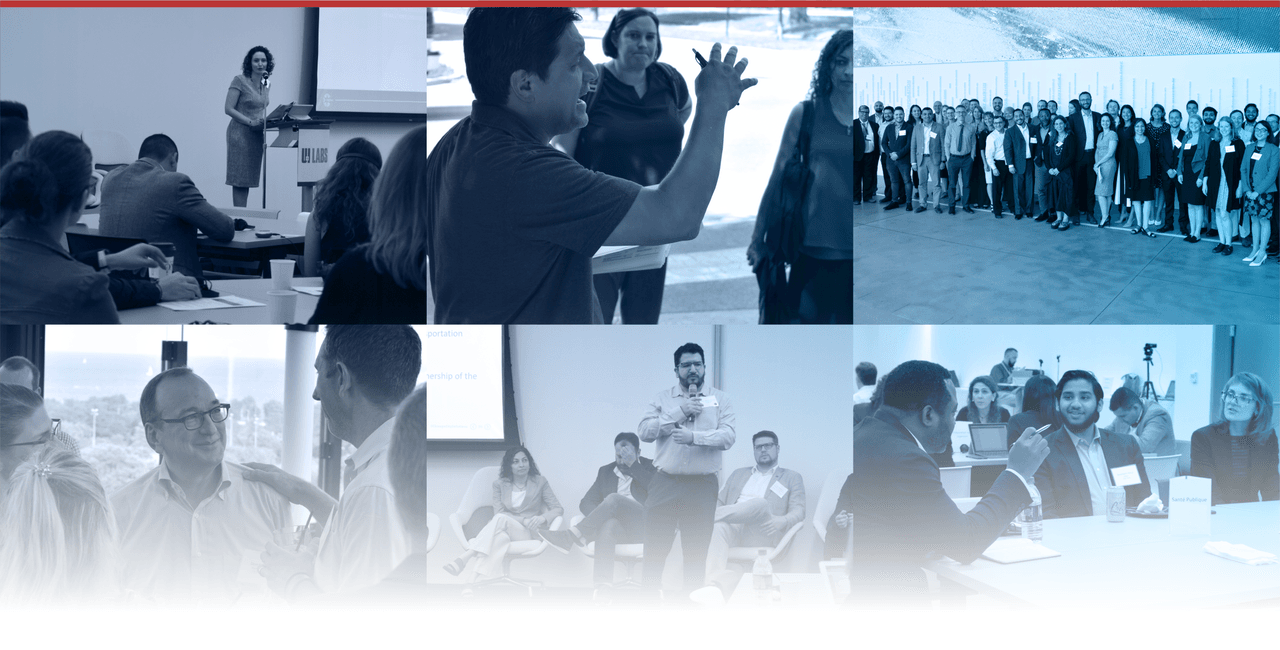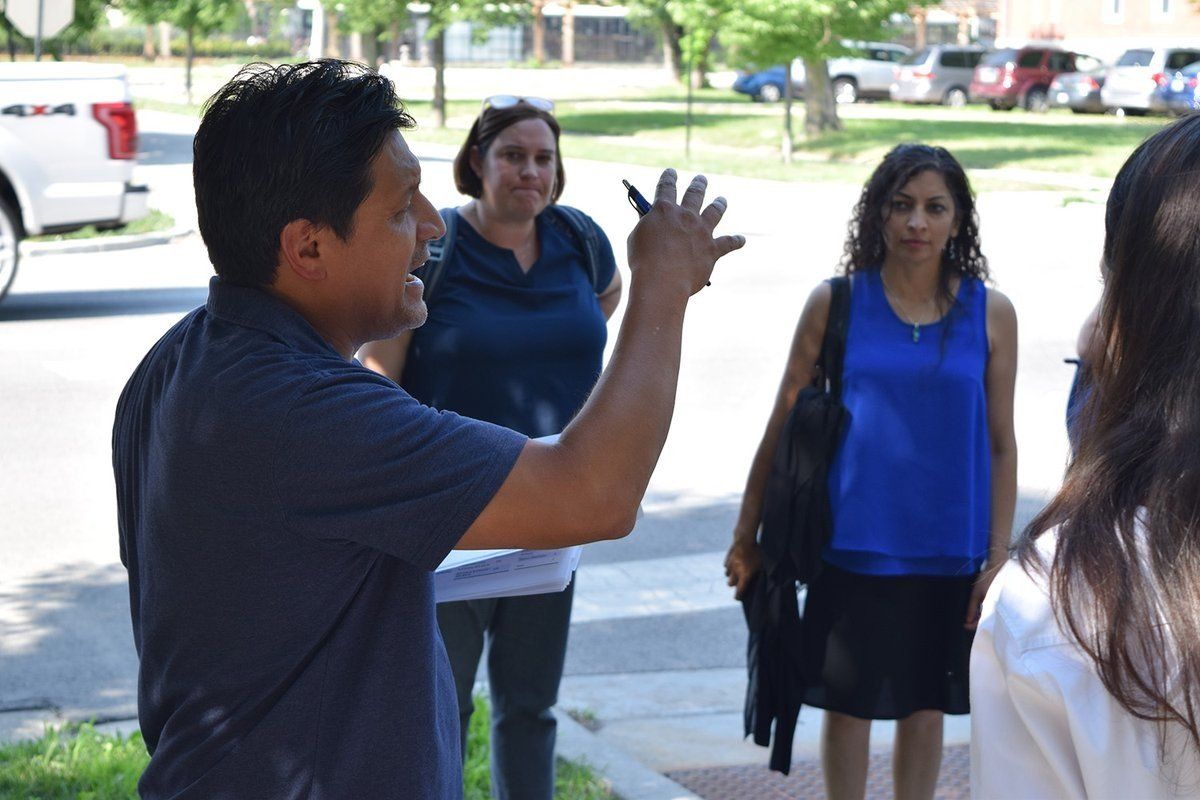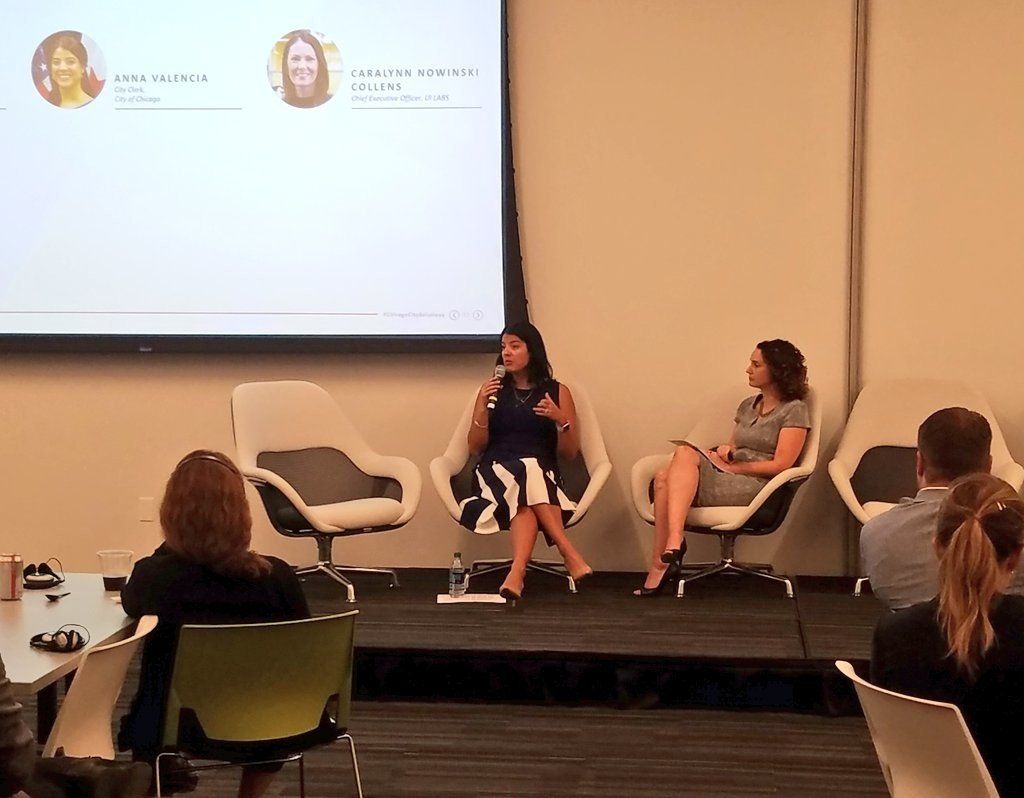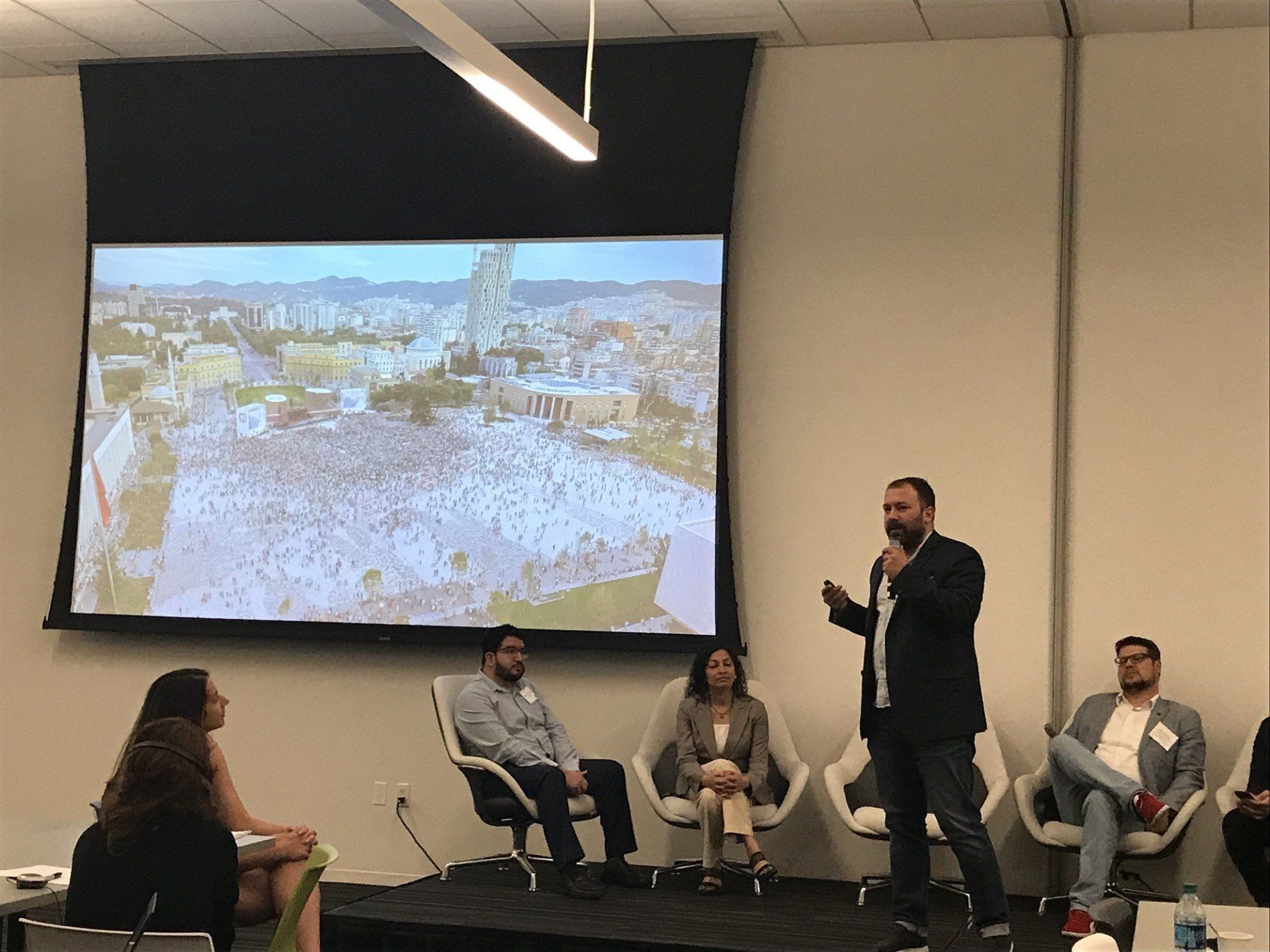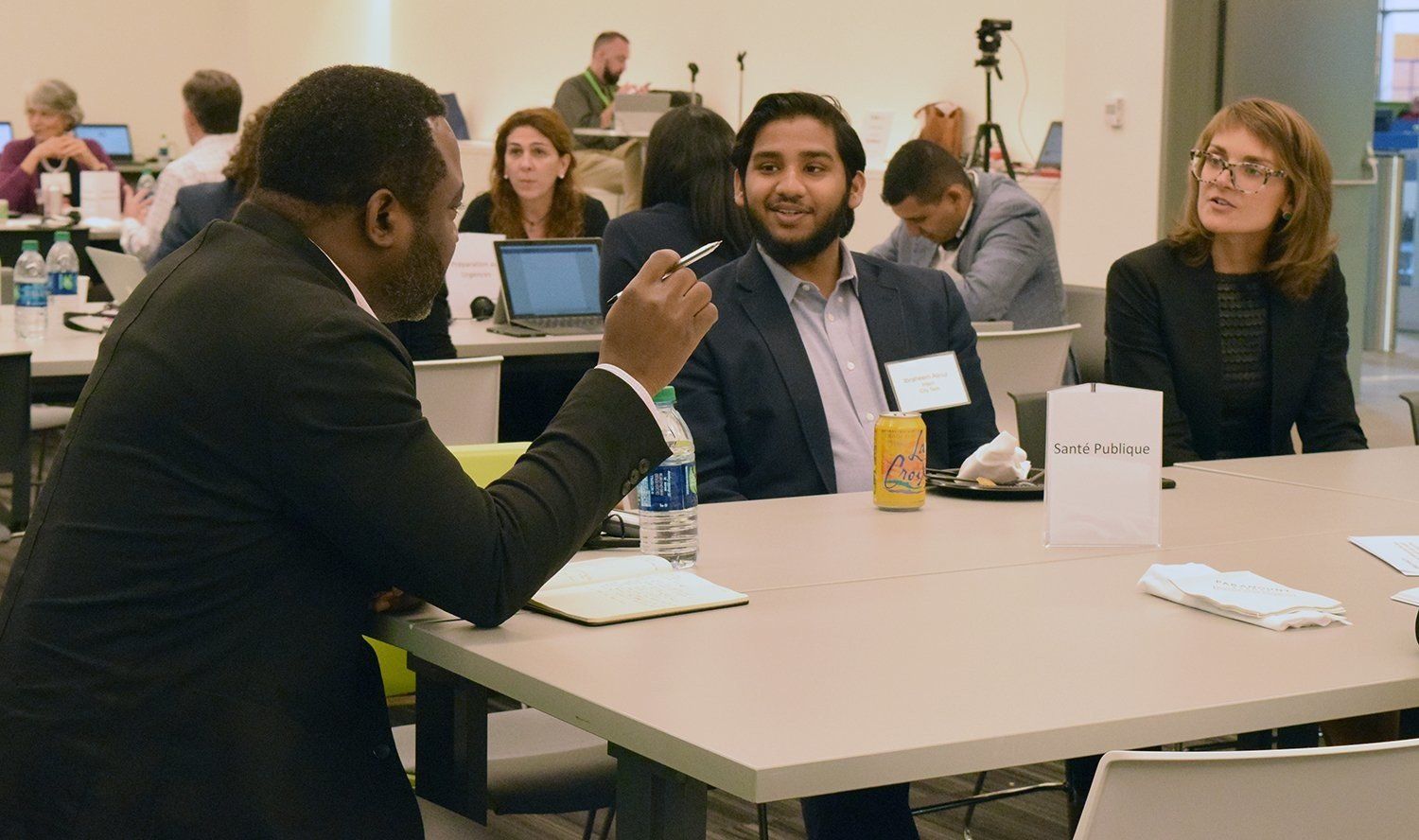Chicago City Solutions Workshop Fosters Learning Among Global Urban Leaders
City Tech Hosts Global Leaders Leveraging Data and Tech to Improve Communities
From July 11-12 2018, representatives from four continents joined the first-ever Chicago City Solutions workshop hosted by the City Tech Collaborative in partnership with UN Habitat, the Global Fund for Cities Development (FMDV), and the City of Chicago.
We were joined by 70+ urban innovators: city managers, deputy mayors, and department heads from 20+ cities from both developed and developing nations. Through panels, discussion, and local site visits displaying some of Chicago's most exciting projects, participants exchanged solutions and challenges spanning infrastructure management, mobility and transportation, emergency preparedness, and public health
While so many of the cities represented struggle with different regional challenges, it wasn't hard for local leaders to discover common lessons that ran through each other's work. Below are 5 key themes that crystalized from the cross-city learnings at the Chicago City Solutions convening.
#1 Don't work alone. Invest in relationships and partnerships that will make your urban innovation ecosystem stronger.
City Tech's Executive director Brenna Berman said it best when she shared one of Chicago's key best practices around formulating innovation pilots: "The right local partnerships have helped Chicago punch above its weight."
That sentiment runs deep here at the City Tech Collaborative and broadly across our industry members, city leaders, community partners, and philanthropic institutions. Chicago is not alone in this, however. Andrew Rodgers from Chattanooga, TN also emphasized that institutions don't have relationships - people have relationships. Building those relationships across city departments, start-ups, technologists, and other partners is slow, but necessary work. It lays a foundation of trust required before any meaningful, scalable collaborations can happen.
Creative partnerships were displayed in many of the city cases explored throughout the Chicago City Solutions workshop and were especially visible during the local site visits. The Elevated Chicago site visit was hosted by the Garfield Park Community Council, the Chicago Community Trust, and the Metropolitan Planning Council (MPC). The innovative community-philanthropy-research partnership led global leaders on a tour of Garfield Park, showcasing the CTA station and the plans around equitable, community-driven development.
Chicago City Solutions participants also visited Chicago's groundbreaking Vapor.io
Data Center as well as the Array of Things
initiative at the University of Chicago. Both projects demonstrate how unique partnerships can future-proof the city to help it reach desirable mobility, connectivity, and public health outcomes.
#2 Leverage human-centered design practices. Technology solutions are only as valuable as they are accessible, usable, and relevant to residents.
One of the highlights of the Chicago City Solutions workshop was a fireside chat with City Clerk Anna Valencia who shared more on Chicago's high profile City Key initiative. Around the world, municipal ID programs are being explored and deployed, making it a timely topic for the workshop audience. Valencia spoke about how such projects have the potential improve city services and resident experiences, but only if they are designed with end users in mind. The barriers, incentives, and preferences of those end users should be the central strategic force guiding project decisions. In the case of City Key, the Clerk's office made their project stronger by hosting a series of focus groups around the city.
The importance of resident engagement and inclusive design were echoed by leaders like George Burciaga of IGNITE cities and Carola Orduna of Santa Fe, Argentina. Burciaga emphasized that deploying the Internet of Things (IoT) in cities had to come from a fundamentally human-centered planning perspective. Without that, cutting edge technology infrastructure would simply become an urban solution without a relevant problem to solve. Speaking on reducing flooding risks in Santa Fe, Orduna emphasized the importance of direct resident communication about risks. In particular, she highlighted to need to engage with youth. Not only are youth key stakeholders in urban flooding challenges, but engaging with them also means empowering potential future innovators that can help address those civic problems in the future.
#3 Structure your projects to either succeed or "fail forward".
The question of how cities manage risk arose over and over throughout the workshop. From Brussels to Mexico City, representatives agreed: don't treat innovative projects like operational projects. Instead, city governments should build in room for risk tolerance by adopting new, cross-sector partnerships or outside funding sources. This can happen by partnering with corporations on a pilot basis or forming a local "urban lab" that can be a consistent home for collaboration. These urban lab entities, like City Tech, have more flexibility to facilitate problem solving across sectors and are nimble enough to pursue new projects at a faster pace.
There was also agreement that local champions of cutting edge data and technology projects should manage partner and public expectations differently. For instance, instead of measuring success as achieving expected outcomes, there should be room to celebrate discovering unexpected public value or disproving an assumed hypothesis. What might usually be considered failure in an operational project could just as easily be productive in an innovative one - especially when lessons learned are shared openly with stakeholders, residents, and other cities implementing similar work.
#4 Decentralize and de-sigmatize innovation in your city.
Chicago City Solutions participants agreed that the local innovation culture that fuels our work is valuable, but also comes with unfortunate assumptions that need to be combated:
- Innovation only happens in certain dedicated spaces: incubators, universities, start-ups, corporations. etc.
- Innovation stems from and is owned by so-called experts: city leaders, corporations, technologists, universities, etc.
-
Innovation means a new technology or tool, not a new human process or program.
These assumptions effectively “otherize” innovation in our cities, making it a divisive force when it could be a uniting one. The question arose: How can we combat the assumptions above that make “innovation” too centralized and inaccessible to to the people we are trying to serve?
One way City Tech aims to decentralize the innovation process in Chicago is through our CUTGroup program. CUTGroup is a community of 2,000+ Cook County residents who are paid to test emerging civic apps, City websites, and data tools. No experience with technology is required to meaningfully improve these technologies. In fact, broad resident input makes the solutions stronger and more usable. It makes sense to change the power dynamic and invite residents into the civic technology development process early and often.
#5 Use city networks for support, learning, AND action.
Convenings like the Chicago City Solutions workshop remind us that local practitioners have a lot to learn from one another’s projects. After all, these leaders have an inherent practical bias, being the points of accountability for visible elements of a well-run system: plowed streets, clean water, uncongested roads, etc. City networks and convenings can provide a much-needed platform for cities to share emerging solutions that will improve residents’ quality of life.
Still, in addition to sharing and learning, city networks should be a catalyst for action. This was another strong consensus point with the Chicago City Solutions participants. After the two-day event, an important strategic question remained that will likely fuel collaboration in the community going forward: how can the participant cities work together in coalitions or pairs to develop and pilot smart city solutions together?
Later in 2018, Chicago City Solutions partners will release a full report on the lessons from the July event. City Tech looks forward to sharing those results and continuing to contribute to this important global network!
Special thanks go out to our Chicago Cities Solutions sponsors Bosch, Dover, and Intel whose support made this global convening of city leaders possible.
